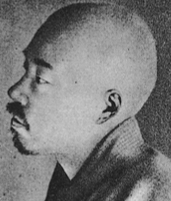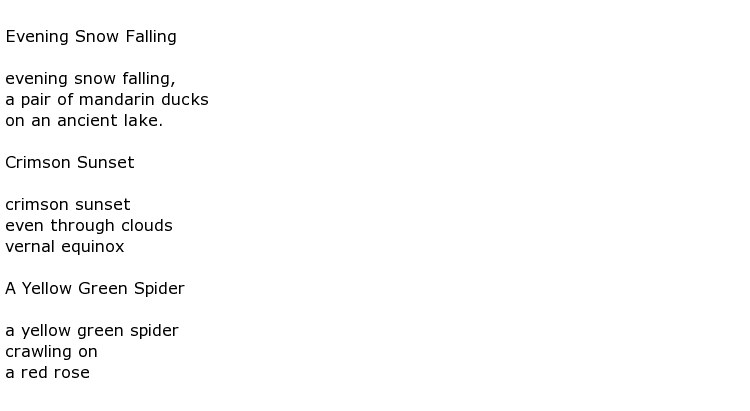 Masaoka Shiki was a Japanese poet and literary critic who lived during his country’s Meiji period which ran from 1868 to 1912. He was one of the earlier exponents of the modern version of haiku poetry and is considered, by some students of the art, to be one of the four great haiku masters. He also specialised in the short-form version of the genre which is known as tanka poetry. As a teenager he was an accomplished baseball player and, in 2002, was inducted into the Japanese Baseball Hall of Fame.
Masaoka Shiki was a Japanese poet and literary critic who lived during his country’s Meiji period which ran from 1868 to 1912. He was one of the earlier exponents of the modern version of haiku poetry and is considered, by some students of the art, to be one of the four great haiku masters. He also specialised in the short-form version of the genre which is known as tanka poetry. As a teenager he was an accomplished baseball player and, in 2002, was inducted into the Japanese Baseball Hall of Fame.
He was born Masaoka Tsunenori on the 14th October 1867 in Matsuyama City, Iyo Province. His family was of the Samurai class but not particularly well off. As he grew up he became known firstly as Tokoronosuke and then, once he started writing poetry, he used the pseudonym Masaoka Noboru, later changing it once more to Shiki. His early years were affected by the death of his alcoholic father when he was only five years old and his mother had the responsibility of providing him with private tuition. He attended the Matsuyama Middle School but found himself in trouble with the school authorities over his interest in radical politics, even at the young age of 15. Within a year he had moved to Tokyo to better himself, an uncle having come forward with an offer of accommodation.
He went to school in Tokyo and then, in 1890, he was enrolled at the Imperial University where he became very interested in literature, associating himself with a future novelist by the name of Natsume Sōseki. This was not a successful time academically and within two years he had dropped out of his studies. Some say that it was his burgeoning interest in haiku poetry while others blame ill health, tuberculosis in particular. He certainly produced a reasonable output of written work at this time including a curiously titled essay On Western Dogs which was, as the title suggests, about the advantages of the breeds of western dogs over Japanese breeds, the latter (according to Shiki) being only good as hunting and guard dogs.
Shiki thought that the popularity of classic forms of writing was on the wane in the modern Meiji era, hence his interest in perpetuating the haiku and tanka forms. He wrote a long piece on haiku reform called Talks on Haiku from the Otter”s Den which was serialised in Nippon, a Tokyo newspaper. The editors were so impressed with his work that he was offered a position on the staff with the remit to write more on the subject and he did so over the next few years, many of his articles being critical appreciations of other haiku poets such as Kawahigashi Hekigotō and Takahama Kyoshi.
In 1898 he wrote Letters to a Tanka Poet which was an appeal for the reform of tanka poetry. Although he did not know it he was, in fact, living out the final years of his short life. He had suffered from tuberculosis in his younger years and the disease hit him again in 1895 while on a trip to China during the First Japanese-Sino War where he was acting as a war correspondent. He was so ill that he was coughing up blood and it was at this time that he adopted the name Shiki because of this name’s association with a cuckoo which also, apparently, produces blood from its throat when it sings.
Shiki’s output of short-form poetry was considerable and critics generally credit him with single-handedly establishing this form of writing in the Meiji period. Here are a few examples of his work:

Masaoka Shiki died of tuberculosis on the 14th October 1867 at the age of 34. He had been bed-ridden and addicted to morphine for some time before he finally succumbed to the crippling disease and yet, incredibly, he managed to write three “sickbed diaries” during his final year which were all published.

